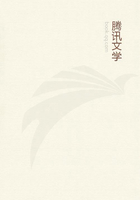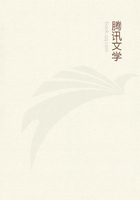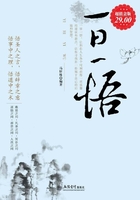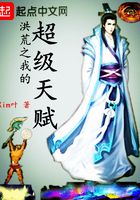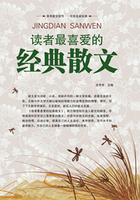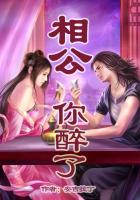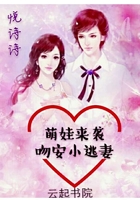LISZT AND COMTESSE D'AGOULT. _MAUPRAT_
We have given the essential features of the Venice adventure.
The love affair, into which George Sand and Musset had put so much literature, was to serve literature. Writers of the romantic school are given to making little songs with their great sorrows.
When the correspondence between George Sand and Musset appeared, every one was surprised to find passages that were already well known.
Such passages had already appeared in the printed work of the poet or of the authoress. An idea, a word, or an illustration used by the one was now, perhaps, to be found in the work of the other one.
"It is I who have lived," writes George Sand, "and not an unreal being created by my pride and my _ennui_." We all know the use to which Musset put this phrase. He wrote the famous couplet of Perdican with it: "All men are untruthful, inconstant, false, chatterers, hypocritical, proud, cowardly, contemptible and sensual;all women are perfidious, artful, vain, inquisitive and depraved.
. . . There is, though, in this world one thing which is holy and sublime. It is the union of these two beings, imperfect and frightful as they are. We are often deceived in our love;we are often wounded and often unhappy, but still we love, and when we are on the brink of the tomb we shall turn round, look back, and say to ourselves: `I have often suffered, I have sometimes been deceived, but I have loved. It is I who have lived, and not an unreal being created by my pride and _ennui_.'"Endless instances of this kind could be given. They are simply the sign of the reciprocal influence exercised over each other by George Sand and Musset, an influence to be traced through all their work.
This influence was of a different kind and of unequal degree. It was George Sand who first made literature of their common recollections.
Some of these recollections were very recent ones and were impregnated with tears. The two lovers had only just separated when George Sand made the excursion described in the first _Lettre d'un voyageur_.
She goes along the Brenta. It is the month of May, and the meadows are in flower. In the horizon she sees the snowy peaks of the Tyrolese Alps standing out. The remembrance of the long hours spent at the invalid's bedside comes back to her, with all the anguish of the sacred passion in which she thinks she sees God's anger.
She then pays a visit to the Oliero grottoes, and once more her wounded love makes her heart ache. She returns through Possagno, whose beautiful women served as models for Canova. She then goes back to Venice, and the doctor gives her a letter from the man she has given up, the man she has sent away. These poetical descriptions, alternating with lyrical effusions, this kind of dialogue with two voices, one of which is that of nature and the other that of the heart, remind us of one of Musset's _Nuits_.
The second of these _Lettres d'un voyageur_ is entirely descriptive.
It is spring-time in Venice. The old balconies are gay with flowers;the nightingales stop singing to listen to the serenades.
There are songs to be heard at every street corner, music in the wake of every gondola. There are sweet perfumes and love-sighs in the air.
The delights of the Venetian nights had never been described like this.
The harmony of "the three elements, water, sky and marble,"had never been better expressed, and the charm of Venice had never been suggested in so subtle and, penetrating a manner.
The second letter treats too of the gondoliers, and of their habits and customs.
The third letter, telling us about the nobility and the women of Venice, completes the impression. Just as the Pyrenees had moved George Sand, so Italy now moved her. This was a fresh acquisition for her palette. More than once from henceforth Venice was to serve her for the wonderful scenery of her stories.
This is by no means a fresh note, though, in George Sand's work.
There is no essential difference, then, in her inspiration.
She had always been impressionable, but her taste was now getting purer. Musset, the most romantic of French poets, had an eminently classical taste. In the _Lettres de Dupuis et Cotonet_, he defined romanticism as an abuse of adjectives.
He was of Madame de Lafayette's opinion, that a word taken out was worth twenty pennies, and a phrase taken out twenty shillings.
In a copy of _Indiana_ he crossed out all the useless epithets.
This must have made a considerable difference to the length of the book.
George Sand was too broad-minded to be hurt by such criticism, and she was intelligent enough to learn a lesson from it.
Musset's transformation was singularly deeper. When he started for Venice, he was the youngest and most charming of poets, fanciful and full of fun. "Monsieur mon gamin d'Alfred,"George Sand called him at that time. When he returned from there, he was the saddest of poets. For some time he was, as it were, stunned. His very soul seemed to be bowed down with his grief.
He was astonished at the change he felt in himself, and he did not by any means court any fresh inspiration.
_J'ai vu, le temps ou ma jeuxesse_
_Sur mes levres etait sans cesse_
_Prete a chanter comme un oiseau;_
_Mais j'ai souffert un dur martyre_
_Et le moins que j'en pourrais dire_, _Si je lessayais sur a lyre_, _La briserait comme un roseau_, he writes.
In the _Nuit de Mai_, the earliest of these songs of despair, we have the poet's symbol of the pelican giving its entrails as food to its starving young. The only symbols that we get in this poetry are symbols of sadness, and these are at times given in magnificent fulness of detail. We have solitude in the _Nuit de decembre_, and the labourer whose house has been burnt in the _Lettre a Lamartine_.
The _Nuit d'aout_ gives proof of a wild effort to give life another trial, but in the _Auit d'octobre_ anger gets the better of him once more.

